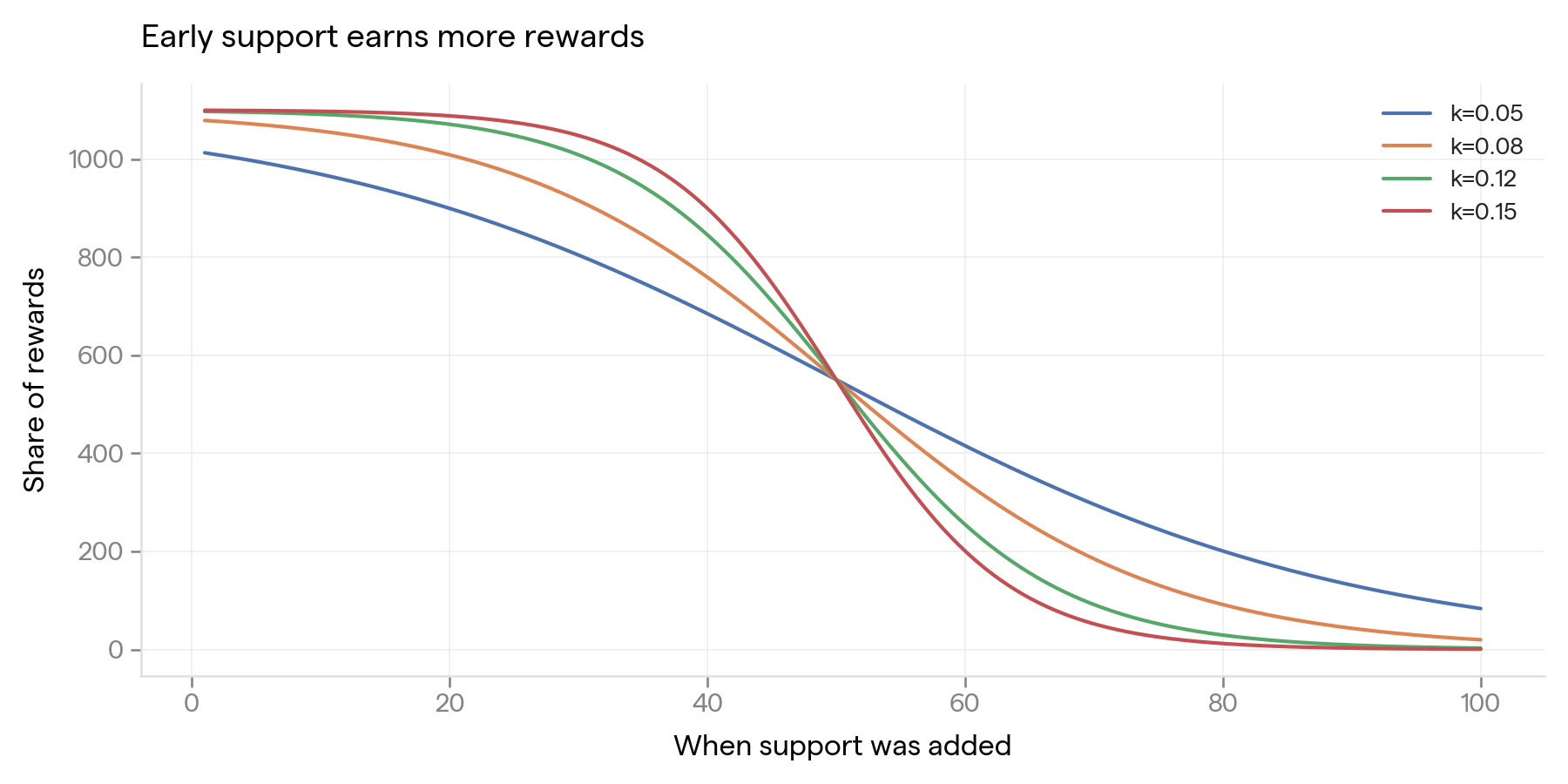We recently published a piece on the technical design of the Signals protocol. If you haven’t read it yet, you might want to start there first.
Understanding participation in Web3 governance
During our time spent engaging with the top Web3 governance ecosystems, we experienced first hand the struggles communities face caused by a lack of participation. Core users who are passionate about governance are naturally motivated to participate, but for the large majority of token holders, the benefits of participation don’t outweigh the effort required. In an attempt to improve the effort-reward ratio, it is now quite common for DAOs and ecosystems to offer financial incentives to encourage enough participation to keep things operating smoothly. According to a 2025 DAOStar report, some DAOs even spend more than $1M USD per year on paid delegate programs, which proves it is an important issue.
We also have seen situations in which voter behaviour is heavily influenced by unintentional game theory. Early statements of support can carry reputational risk, which leads to all the votes coming in at the last minute with no room for discussion or amendment.
Encouraging delegates and voters to express their stance as early as possible is a large benefit to these decision-making systems, but there is currently no common strategy for achieving this.
Motivating high-quality participation in Signals
Even though Signals is not meant to be a voting system, it will most likely face similar challenges to those mentioned above. We decided to offer built-in ways to incentivize the type of participation that would avoid the issues most commonly encountered when using the current systems. We also kept a few questions in mind when working on our solution, partly inspired by some of the most common problems faced by DAOs:
-
What does it take to get the majority of community members to participate in decision-making?
-
What does high-quality participation look like? Is it enough to reward all participation, or can we structure the incentives to promote a certain type of participation?
-
How can we prevent our incentives structure from encouraging malicious behavior or being exploited?
We ended up producing two mechanisms designed to deliver financial incentives based on the successful actioning of a Signals initiative. Both are intended to accentuate the existing game theory aspects of Signals: supporting initiatives that accurately represent wider community sentiment is rewarded, and supporting unpopular or self-serving initiatives is penalized through missed opportunity.
Mechanism 1: General participation incentives
The first mechanism encourages participation across the board, by paying out financial rewards directly to users who support initiatives that go on to be actioned by the community. An amount of tokens can be added to the rewards pool of a Signals Board (funded from a DAO’s treasury, perhaps), and the Board can be configured to automatically share the rewards with supporters of any initiative that is actioned.
The indicators exposed by Signals are more valuable if support is received early, and so a supporter’s share of the rewards are heavily influenced by how early they added their support. The formula for this weighting can be customized to find the optimal balance.

This type of incentive will have the following benefits:
-
More token holders will participate, due to the effort-reward ratio being improved: earn easy money by simply supporting the best initiatives
-
Adding support early earns more rewards. Influential community members will now compete to be the first to make their opinions known, instead of waiting until the last minute
-
Supporting an unpopular initiative might mean missing out on one that earns a reward, resulting in more intentional expressions of support
If DAOs are already dedicating a budget towards paid delegates, perhaps they could instead devote some of those funds towards the general participation incentives pool. While encouraging wider participation, it could also work to redistribute tokens to the most active and representative users.
Mechanism 2: Sponsored initiative incentives
The second mechanism allows entities to contribute rewards to a specific initiative, making it more appealing to supporters. If the initiative expires, the rewards are returned to the original contributor. If the initiative is actioned, the rewards are shared between initiative supporters, the DAO treasury, and the protocol according to a pre-configured ratio.
The ratio of how the rewards are distributed between these three buckets can be adjusted to incentivize a desired type of behaviour. A common configuration might look something like:
-
80% paid to DAO treasury
-
15% distributed to supporters of the initiative
-
5% donated to the protocol to fund further development
This type of incentive will have the following benefits:
-
Sponsors or high-profile supporters of an initiative can show their dedication by contributing rewards from their own personal funds
-
External entities that want to establish a special relationship with the DAO through an initiative can prove up front that they are ready to contribute the funds necessary to carry out the initiative
-
An initiative that has a large amount of support can crowd-source additional rewards, allowing them to amplify the greater community sentiment
Amplifying Signals’ fundamental design
Signals has been intentionally designed to extract indicators of community sentiment that are meaningful and useful. Users are not able to vote against initiatives; they can only support an idea they agree with, or submit their own. Participating has an opportunity cost, in the form of locked tokens, which filters out weakly-held opinions. Smaller token holders are able to compete with whales, better reflecting the preferences of the community as a whole.
Rewards give community members an extra reason to participate and increase the opportunity cost introduced by time-locking tokens to show support. This allows Signal to be even more effective at surfacing community sentiment and protecting from brigading, manipulation, and erroneous signals due to apathy.
If you would like to learn more or get involved, please reach out.